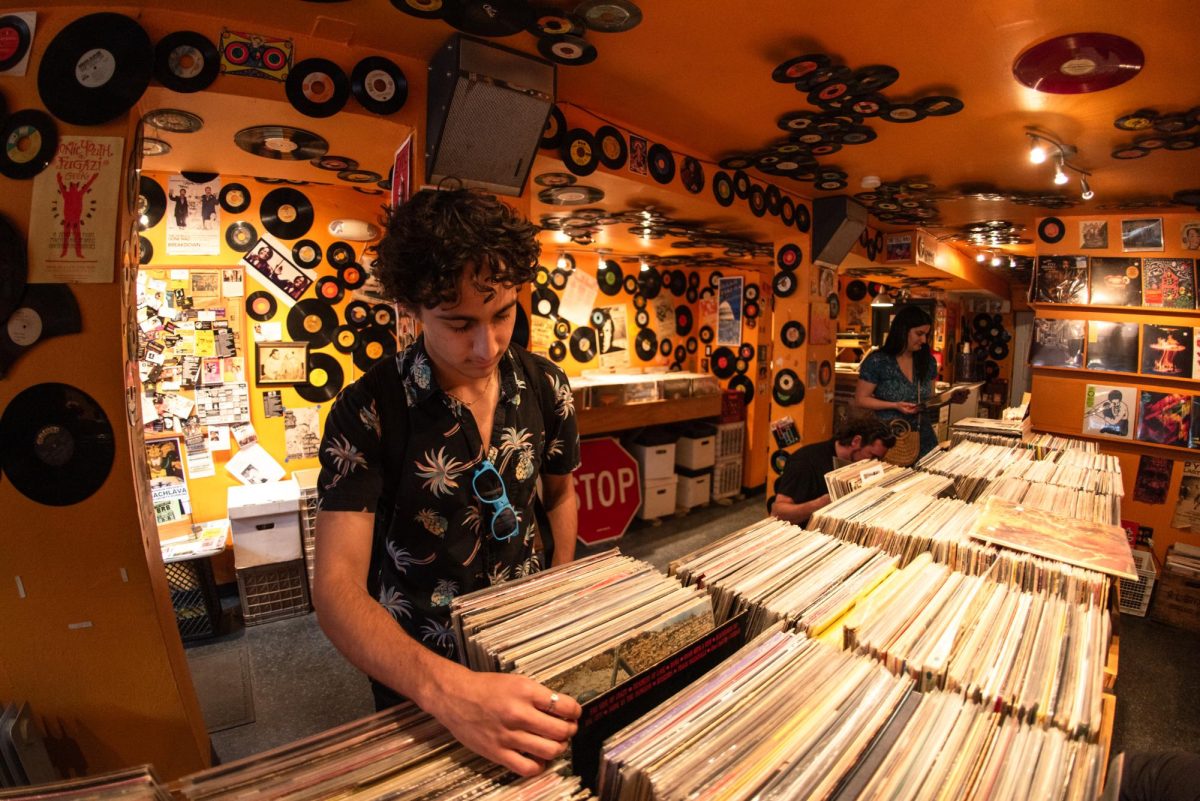For many working in the food industry, restaurants are not just a place of work. Coworkers are like family.
Saying goodbye to some of those family members was one of the most difficult parts of the COVID-19 pandemic, Tonic at Quigley’s Managing Partner Jeremy Pollok said. Tonic laid off about 75 percent of its employees in mid-March, cutting its staff down to about 25 people.
“You get really close with people and then all of a sudden – I’ve never seen anything like it, people are just gone,” Pollok said.
In the past nine months, restaurants across the District have been forced to lay off staff, reduce menu offerings, temporarily shut down or permanently shutter. Restaurant owners across Northwest D.C. said the personal toll of the pandemic on their businesses is just as bad as the financial one, and they’ve tried to help out their former employees by recommending them for other jobs or creating new business models to get employees rehired.
The personal toll of the pandemic
Constantine Stavropoulos, the owner and CEO of the Tryst Trading Company, which owns The Diner in Adams Morgan, said the pandemic and related layoffs have taken a toll on staff morale.
Some of the people who were laid off had been working at The Diner for more than a decade, and he said it hurt for him to lay off staff who depended on their jobs to support their livelihoods.
“This is my life, it’s been my life for 22 years now, and it’s the life of my family,” he said. “On a personal level, it was just sad not to have staff there, not to go to work and see faces and see people that we know.”
The Tryst Trading Company’s staff shrunk from 324 to six employees after the shutdown in mid-March, but they’ve since been able to “slowly build it back up.” Staff is required to wear masks and gloves at all times and take their temperatures when coming into work.
Although The Diner has employed both outdoor and indoor seating in the past months, Stavropoulos said sales are still down about 80 to 85 percent.
“We’re all about community gathering, coming together,” Stavropoulos said. “Tryst is like one big public living room. So the idea of not being able to share and have the community come, it was a big hit to us. It was a big hit to all restaurants, but ours in particular in the sense that we weren’t doing a lot of to-go business.”
Since 1958, Ben’s Chili Bowl on U Street has withstood long-term construction and riots, but the D.C. classic faced one of its biggest challenges yet in the pandemic – sales were down 90 percent overnight after the shutdown in March and the restaurant has not offered indoor dining since March 15.
Vida Ali, one of the family members that owns the restaurant, said the U Street location quickly pivoted their business model to rely on delivery and contactless pickup services like Uber Eats, GrubHub and Toast. Ali said some workers had young kids or lived with elderly people and were worried about coming in to work, so the owners gave employees the choice to come back.
Despite the financial challenges presented by the pandemic, the restaurant has donated about 6,000 meals to hospital workers, teachers and protesters in the past nine months. Shortly after, Ben’s Chili Bowl started to receive monetary donations with requests to send food to hospitals around D.C.
“People started hearing that we were doing that,” Ali said. “And then they started donating money to us and saying, ‘Hey, can you do some for Washington Hospital Center? Can you do some for GW?’”
Working to rehire staff
Some restaurant owners said they needed to recreate business to get staff rehired by expanding take-out options or launching new dining options.
Dan Simons, the co-owner of Farmers Restaurant Group, said in mid-March the company laid off 1,100 employees across its locations in D.C., Maryland, Virginia and Pennsylvania.
To get back some employees, the company launched an e-commerce platform called Founding Farmers Market & Grocery in which customers could purchase anything in their supply chain, from prepped meals for brunch at home to flour, hand sanitizer and toilet paper. The group also added Founding Farmers chocolate, a collection of house-made chocolates available for pick up and delivery, to their product line.
The new business model allowed the company to rehire about 800 employees to fulfill the online orders, he said.
“We diversified the operations by just expanding the product line to anything that would naturally come through our supply chain that we knew that our customers wanted or needed at home,” Simons said.
Farmers Restaurant Group employees are required to go through an in-person health screening before each shift, and the company employed an app that allows employees to track their co-workers’ health and even conduct a health screening from home.
The group also publishes an updated COVID-19 dashboard that details employee health including confirmed coronavirus cases, flu vaccinations, days of paid sick leave and the safety precautions taken by each restaurant. He said the system helps build trust and confidence with staff who may be hesitant to return to work.
Kramerbooks and Afterwords, a 44-year-old bookshop and café in Dupont Circle, said the restaurant invested in 10 dining igloos, or “bubble tents,” to add to their 19th Street “streatery” as temperatures continue to plummet to keep business afloat. The joint also created a sandwich pop up called Fedwich, allowing them to rehire staff to fulfill orders.
“If you’re a server, there’s no tables to serve,” Salis said. “And having to tell those people they were furloughed was really tough. And then, you know, cooks, there’s no food to cook, and booksellers have no guests to talk to. And so we were able to reallocate a lot of those tasks to fulfill the orders.”
Looking ahead
As of early December, more than 80 D.C. restaurants and bars have closed due to the pandemic, including former GWorld vendors Burger, Tap & Shake and Bertucci’s.
Tonic at Quigley’s, Farmers Restaurant Group, Kramerbooks and Afterwords Café, The Diner and Ben’s Chili Bowl all received loans or grants from the Paycheck Protection Program, or the D.C. government, like the Streatery Winter Ready Grant Program, which set aside $4 million to help restaurants winterize with $6,000 grants.
Despite the funding, Mayor Muriel Bowser’s office implemented new restrictions on dining amid rising cases both in the District and nationwide. Effective Wednesday at 10 p.m. until 5 a.m. Friday, January 15, restaurants in the District may not seat patrons indoors, and non-essential businesses must use telework options.
Despite the added challenges of staying afloat, restaurant owners said they are still optimistic about the months ahead with the new dining innovations that have come about as a result of the pandemic, like the igloos and take-out options, which are permitted under the temporary regulations.
“It’s a very resilient industry,” Salis said. “There’s a lot of really great ideas not really always coming from us, calling around and asking what others are doing. And it’s really been a trying moment, but I’m very optimistic about what we’re going to do this winter.”
Ali, a Ben’s Chili Bowl owner, said the restaurant faced several challenges since the restaurant’s founding more than six decades ago, from the Metro’s construction in front of the store to the 1968 riots following the assassination of Martin Luther King Jr. She said if Ben’s could withstand these obstacles, then the pandemic “shall pass.”
“When those kinds of things happened, it gave us more credibility in the community and in the culture,” Ali said. “This is a place that withstood the time, it withstood all the ups and downs and is still standing.”







